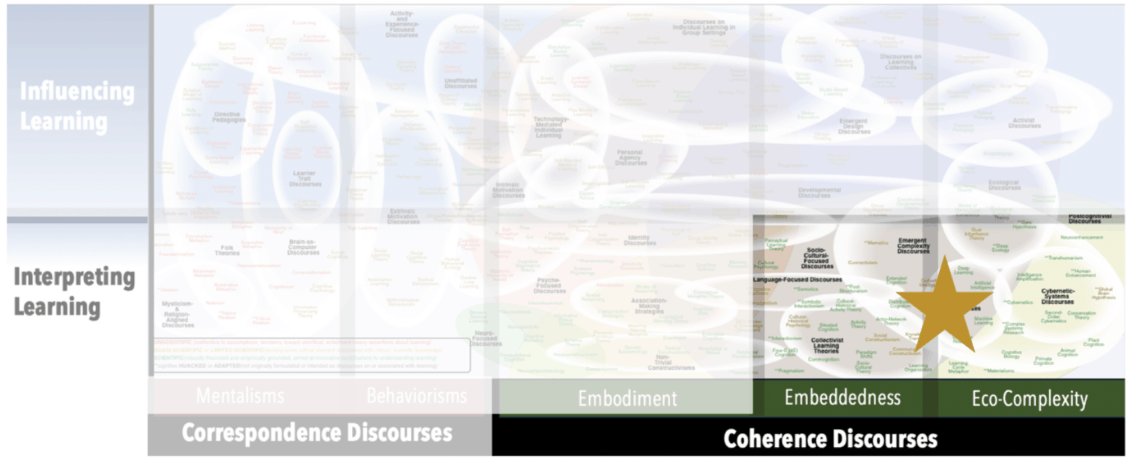Focus
Linking humanity through technology into a single information processing systemPrincipal Metaphors
- Knowledge is … the sum of activity in the system
- Knowing is … flow of information
- Learner is … a complex, dynamic, global network
- Learning is … increasing connectivity
- Teaching is … N/A
Originated
1990sSynopsis
The Global Brain Hypothesis is inspired by the perceived similarities between the world-wide web and the brain (e.g., analogies include webpages–neurons, hyperlinks–synapses, social-networks–neural-networks). Proponents contend that, through the Internet, humans are increasingly linked into a single information processing system that is analogous to a nervous system. This system is complex – that is, emergent, self-organized in nested levels, adaptive – and, as it grows, increasingly like a planetary brain.Commentary
The Global Brain Hypothesis can be criticized as profoundly anthropocentric. The “global brain” envisioned is really a more tightly networked species, not a planetary nervous system. That said, the most popular “criticisms” are perhaps better described as “anxieties,” as they tend to revolve around such concerns as suppression of individuality, loss of freedom, and increases in surveillance. Proponents typically respond that the opposite outcomes are more likely.Authors and/or Prominent Influences
Peter Russell Francis HeylighenStatus as a Theory of Learning
In essence, the single planetary information processing system discussed within the Global Brain Hypothesis is seen as a learning system – or, more accurately perhaps, the Global Brain Hypothesis embraces the notion that complex adaptive systems are, in fact, learning systems.Status as a Theory of Teaching
The Global Brain Hypothesis is not a theory of learning.Status as a Scientific Theory
The Global Brain Hypothesis is deeply attentive to its metaphors and their entailments, but its support is principally presented through analogies and arguments rather than empirical evidence.Map Location

Please cite this article as:
Davis, B., & Francis, K. (2020). “Global Brain Hypothesis” in Discourses on Learning in Education. https://learningdiscourses.com.
⇦ Back to Map
⇦ Back to List
